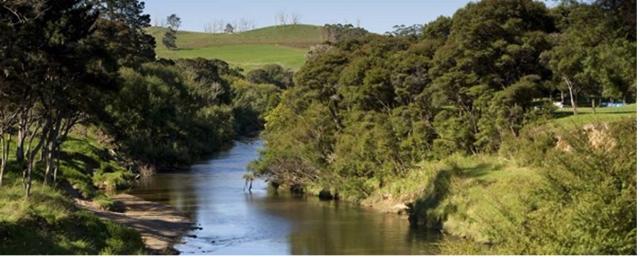Here’s an update on our work around NZ as part of regional planning processes relating to freshwater plans.

B+LNZ supports farmers to influence and achieve better outcomes from regional policy processes.
These processes have been focused on freshwater management since the introduction of the National Policy Statement for Freshwater Management 2020 (NPS-FM). This provides regional councils with direction on how they should manage freshwater under the Resource Management Act.
Regional councils have been updating their regional plans to give effect to the NPS-FM, and are at varying stages of these processes.
Our concerns
As these plan changes have rolled out, B+LNZ and our farmers have been increasingly concerned about the achievability of some of the national bottom lines that regional councils must meet.
In July we released an independent report by Torlesse Environmental that showed there are fundamental flaws in the suspended fine sediment and 95th percentile national bottom lines.
While the Government has said it will revise the NPS-FM and pushed out the end date that councils can notify their freshwater plans for the implementation of the NPS-FM, the problem is that the NPS-FM is still in place and many regional councils are still continuing with their planning processes on the basis of the current flawed requirements.
B+LNZ has been calling for regional councils to pause their planning processes, while urgent work is undertaken to revise the NPS-FM and development a more appropriate framework for managing suspended fine sediment and E. coli.
What we’re doing with the report
Our report has generated good discussion and there has been very little pushback on the concerns raised, showing how robust the evidence and science was.
We have been meeting with Ministers and officials to ensure they understand the issues and help find a way through this situation.
We have also been in contact with regional councils around New Zealand, sending them the report and following up with meetings and other contact as required.
In parallel, we know that farmers are doing great work to improve freshwater health outcomes and this work should be celebrated.
We’re talking to catchment groups and B+LNZ’s Environment Reference Group about quantifying these successes and telling these stories, so that the Government, regional councils and the public see that freshwater health is hugely important for our farmers.
An opinion editorial by B+LNZ Chair Kate Acland recently ran in the Sunday Star-Times to explain our position – and our care for freshwater – to the public.
Read the opinion editorial here.
Where various regions are at
It has been positive to see more regions have now seen that aspects of the rules are problematic.
Many councils have pushed out notifying their freshwater plans to await further clarity and avoid difficult and costly rework. Horizons, Northland, West Coast, Auckland, Waikato, Hawke’s Bay, Gisborne and, most recently, Southland have all indicated notification won’t happen until at least late 2026 or after the NPS-FM has been amended.
Only a handful of regions appear to still be pushing ahead despite issues including misalignment with changing national policy and the fundamentally flawed national bottom lines. This includes Otago, Greater Wellington, Canterbury, Bay of Plenty, Taranaki, and Tasman regional councils.
B+LNZ is contacting these councils to ensure they’re aware of the flawed national bottom lines and asking them to pause their work.
We are less clear around timeframes for the West Coast, Marlborough and Nelson and are monitoring these councils.
We are concerned that some councils have indicated they may put partial plan changes through, because piecemeal changes may end up being as concerning as a whole freshwater plan, and some councils have yet to provide clarity on what changes they may make to what they originally intended.
We want to avoid councils pushing ahead now and then having to change their plans on the fly during their freshwater hearing processes to give effect to a new NPS-FM. This would be an unnecessarily complicated and expensive process for all parties.
Next steps
This work is ongoing and we’ll continue to put pressure on regional councils that are continuing with freshwater plan processes.
As more information is made clear in each region, we’ll keep farmers updated.
In the meantime, B+LNZ will be telling farmers’ stories to highlight the good work happening around the country but if you have great stories you’d particularly like to be highlighted in your catchment, please contact B+LNZ Environment Integration Lead, Tom Orchiston.
More information
- Our media release about the independent review we commissioned (includes a link to the full report and a summary report)